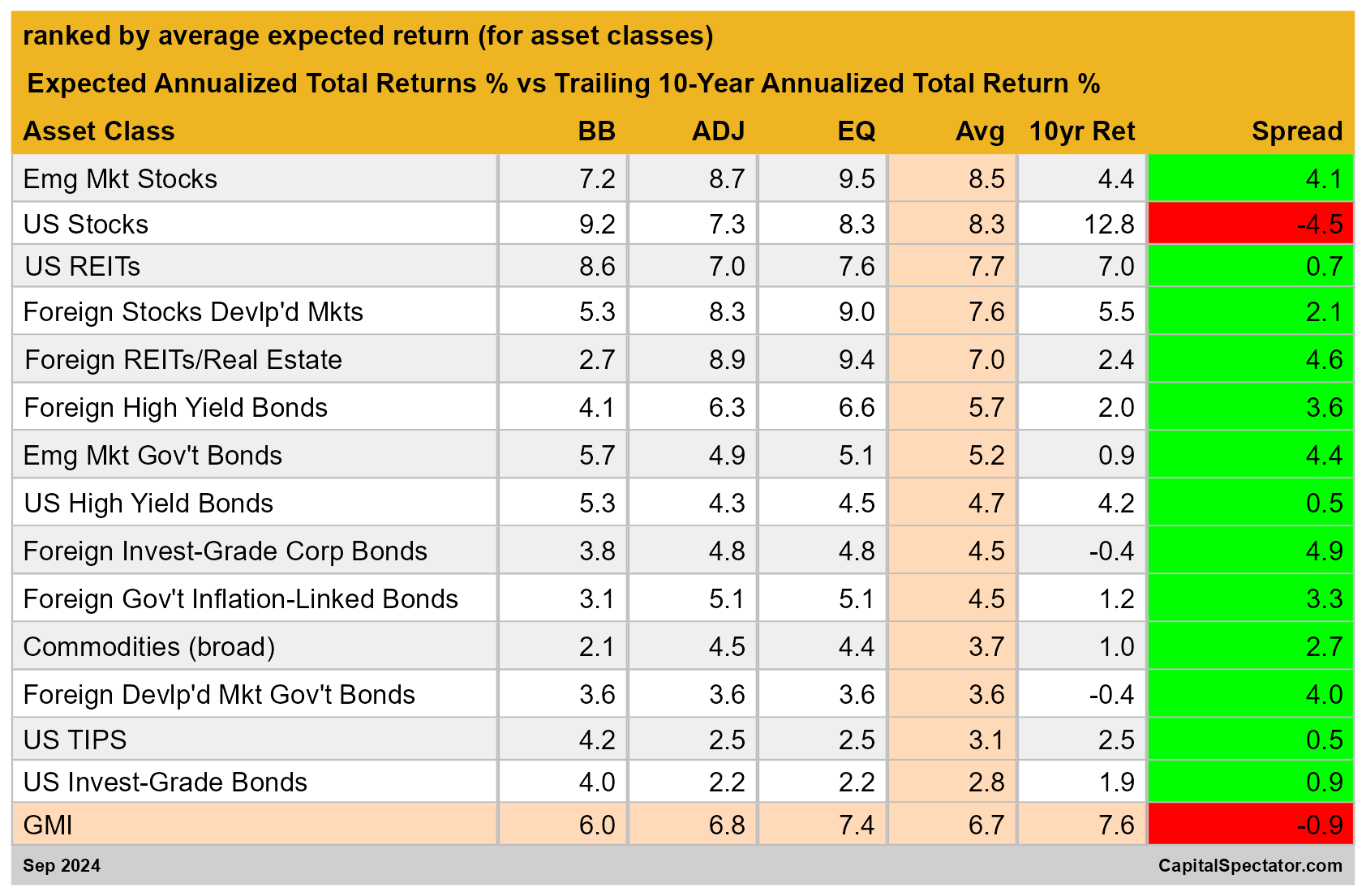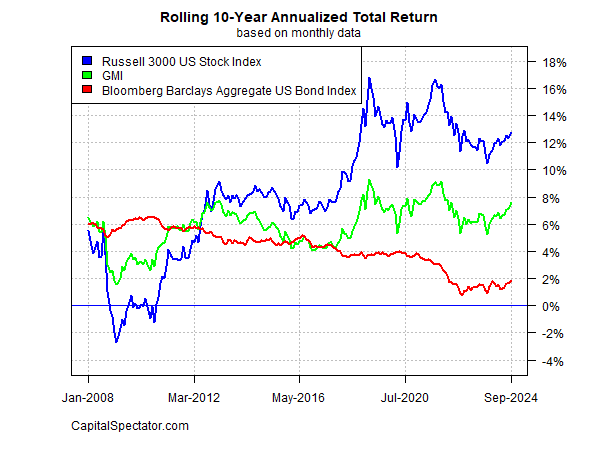Stocks: Long-Term Return Forecasts Make Strong Case for Global Diversification
2024.10.02 09:08
The long-term performance forecast for the Global Market Index (GMI) continued to edge lower in September.
Today’s revised estimate marks the third straight month of decline for GMI, an unmanaged benchmark that holds all the (except cash) according to market weights via a set of ETF proxies.
GMI’s long-term estimate slipped to an annualized 6.7% performance, down from 6.8% in the , based on the average of three models (defined below).
US equities are still a downside outlier for expected return relative to its history and the various asset classes that comprise GMI.
The average forecast for American shares, in other words, is printing well below its trailing 10-year performance. As a result, US shares are expected to earn noticeably softer results in the years ahead vs. the market’s realized return over the past decade.
In sharp relief, the rest of the major asset classes continue to post return forecasts that are above their trailing 10-year records. Based on these estimates, the case for a globally diversified portfolio looks more attractive compared to the past decade.
It’s likely that some, most or possibly all of the forecasts above will be wide of the mark in some degree. GMI’s projections, however, are expected to be somewhat more reliable vs. the estimates for its components.
Predictions for the specific markets (US stocks, commodities, etc.) are subject to greater volatility and tracking error compared with aggregating the forecasts into the GMI estimate, a process that may reduce some of the errors through time.
Another way to view the projections above is to use the estimates as a baseline for refining expectations.
For perspective on how GMI’s realized total return has evolved through time, consider the benchmark’s track record on a rolling 10-year annualized basis.
The chart below compares GMI’s performance vs. the equivalent for US stocks and US bonds through last month. GMI’s current return for the past ten years is 7.6%, which is middling relative to recent history.

In conclusion, the declining long-term performance forecast for the Global Market Index highlights the need for investors to adapt their strategies.








